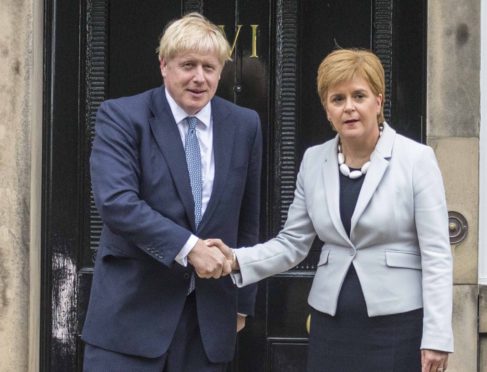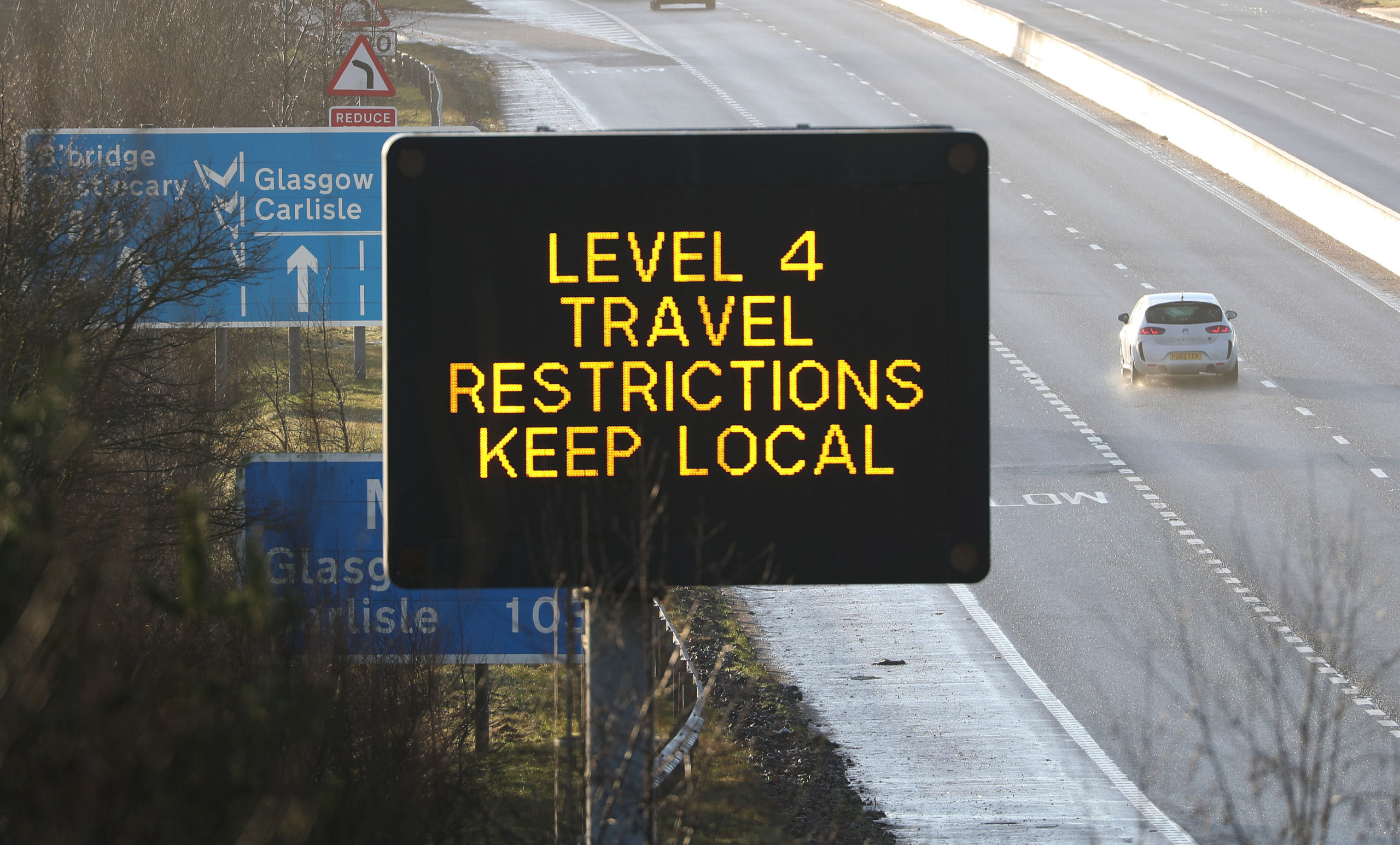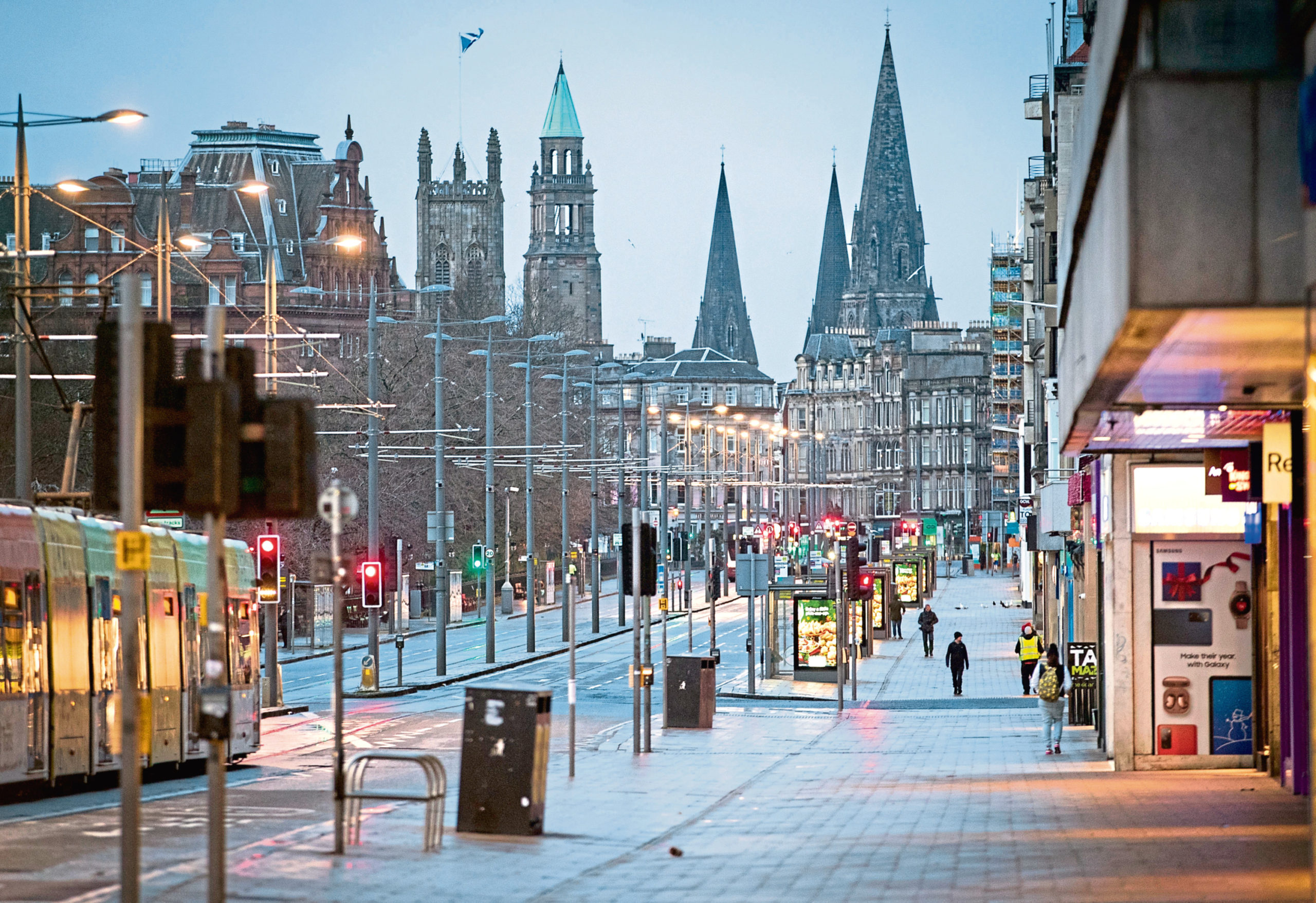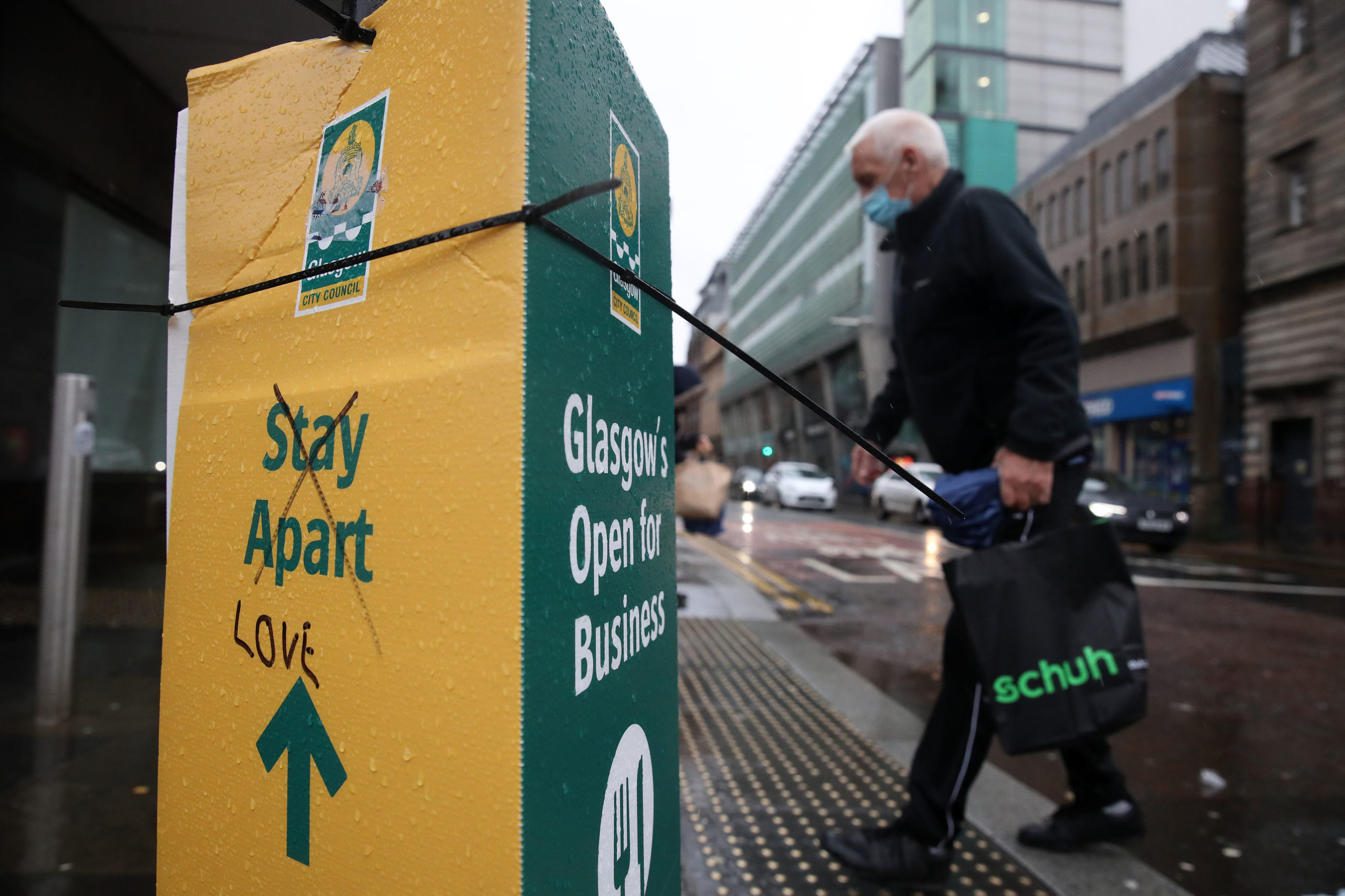
It was a lovely thought. Four nations united in concerted purpose with a single goal, each pulling together, apart but together, to conquer Covid.
In fairness, the accord is unbroken but it has buckled under the weight of the constitutional debate as partisans on both sides analyse the statistics emerging in Edinburgh and London to prove one point or another.
In Scotland, SNP supporters hail the overall performance of Nicola Sturgeon but also her willingness to impose restrictions earlier than England and an apparent willingness to admit to, and apologise for, mistakes.
Critics, however, suggest the First Minister talks a good game but, in practice, has done nothing very different to London and forgets to mention how Scotland has been supported by cash support from the Treasury and the concerted clout of the UK to deliver vaccines at scale.
Certainly, opinion polls show Ms Sturgeon a mile ahead of Prime Minister Boris Johnson when voters rate their performance through this pandemic, in terms of competence and empathy.
Last week, Devi Sridhar, a professor of public health at Edinburgh University and a Scottish Government adviser on Covid, suggested Ms Sturgeon’s government had greater focus than England on getting Covid numbers down in the summer and, if independent, Scotland would have had lower case numbers, similar to those in Norway and Denmark.
In a podcast with Holyrood magazine, she said: “Already, if you look at the charts and the devolved nations, Scotland does come out in terms of lowest case numbers.
“At the start, in March, it did just as badly but since then, in the summer, we got the numbers low. But I think there are constraints. Any time you want to put in a package, an economic package, to be able to support hospitality because we have to shut it, it’s a negotiation at the start.”
She shrugged off criticism that her comments seemed to take sides in the constitutional podcast saying that Ms Sturgeon had been a strong and engaged leader throughout the pandemic, adding: “We have to give respect where it’s due. It’s not a political point – it’s a point about showing up and doing your best for the country. I’ll take the heat for saying that, I don’t mind. I will speak what I think is right.”
But do the numbers support the case for Scottish exceptionalism? Has our approach delivered better results than England, Wales and Northern Ireland?
Academics studying the impact of coronavirus restrictions imposed across the UK suspect if there is a difference, it is marginal and, while the Scottish Government has led the UK in taking tough decisions, that willingness to go early did not make a dramatic difference to outcomes.
Experts at Oxford University’s Blavatnik School of Government say one reason Ms Sturgeon’s leadership through the pandemic may be viewed more favourably than the Prime Minister’s is her greater willingness to apologise when she makes mistakes.
Their Covid-19 Government Response Tracker records and compares government actions around the world, and research assistant Helen Tatlow assigns a score to the UK’s four nations based on the stringency and timing of restrictions. She said: “The tracker is made up of indicators such as school closures, workplace closures, internal movement and international travel restrictions.
“The index is from 0 to 100 and it’s an average of all the component indicators. We assign a value to each one depending on the policy in place and that gives us a composite score by which to compare the nations quite generally.
“For example, if Scotland was in lockdown and England wasn’t, the stringency index for Scotland would be much higher because there are much stricter conditions.
“On January 5 it was high for all nations. England, Scotland and Wales were all at 81.48. Northern Ireland was sitting a little bit lower because their ‘stay at home’ message was just a recommendation on January 5. It became a legal requirement on January 8.”
Dr Thomas Hale, who oversees the tracker, said the stringency scores have remained broadly similar throughout the pandemic. He said: “The difference isn’t huge. Scotland is only at most a week ahead of the rest of the UK. A week can make a difference – a day can make a difference – but it’s not completely different.
“So, I’d say Scotland has been a leader in the UK on getting ahead of things but we shouldn’t overemphasise this. Scotland has not been so ahead of the curve for it to have a decisively different outcome.”
Official UK Government statistics bear this out, with the rate of deaths from the virus in Scotland only slightly lower than in England. There have been 122.4 deaths per 100,000 people in Scotland, 134.6 in England and 156.8 in Wales. Northern Ireland has the lowest death rate in the UK at 96.6 per 100,000.
Despite this, a recent opinion poll showed that 57% of Scots either strongly supported or somewhat approved of Ms Sturgeon’s leadership, giving her a net rating of +24% in Scotland, far ahead of Conservative leader Boris Johnson’s -42%, Labour leader Keir Starmer’s -1%, and Lib Dem leader Ed Davey’s -21%.
Dr Hale suggested the First Minister’s relative popularity was partly because she said sorry when she got it wrong.
Dr Hale said: “The characteristic in politicians perceived to be successful in handling this pandemic is a willingness to admit mistakes, a humility in the face of great uncertainty and a willingness to change tack when required, and to do so in a way that’s clear to the public why things have to change.
“I don’t think all politicians have been doing that effectively.”
#Coronavirus comparison: How #Scotland and #England have done things only slightly differently… and the results were not dissimilar https://t.co/zJFFwC0oB8 via @Sunday_Post pic.twitter.com/nEt782X6sp
— Peter Swindon (@PeterSwindon) January 24, 2021
Ms Sturgeon has regularly said sorry for mistakes made during the pandemic. She apologised over the movement of hundreds of untested and Covid-positive patients to care homes. The First Minister also said sorry when 18,000 vulnerable Scots were incorrectly sent letters which said they could stop shielding last June.
She apologised after thousands of pupils in the most deprived areas of Scotland had their exam pass rate downgraded by more than twice that of students from the wealthiest parts of the country. She also said sorry for “briefly” removing her face mask while attending a wake, calling it a “stupid mistake”.
Dr Stephen Reicher, professor of social psychology at the University of St Andrews and adviser to the UK and Scottish Governments, said: “There is a willingness by Nicola Sturgeon to be humble, to acknowledge problems and mistakes and to change things. Nicola Sturgeon also treats us as partners, as if we’re in this together.
“Boris Johnson blames the public and wags his finger at us, as if we’re the problem. He treats people like children, with this absurd over-hyped optimism. It’s as if he’s trying to hide the bad news from us.
“That’s why, roughly speaking, our trust in the Scottish Government, our willingness to do what the Scottish Government wants us to do is up around 70% or 80%, whereas for Boris Johnson’s government it’s down around 20% or 30%.”
However, Professor Reicher was critical of Ms Sturgeon’s government for offering little or no support to people who have been asked to self-isolate, and for the tragedy in care homes that led to the deaths of almost 2,800 elderly residents.
He said: “It hasn’t been a perfect record. That rhetoric of being in a partnership and of not blaming the public has to be matched in practice.
“Of course there are economic constraints on the Scottish Government because we are part of the UK. The Scottish Government can’t do things with huge financial implications if England doesn’t do them, for instance furloughing many more people.
“So, on one level there are constraints on how much the Scottish Government can diverge but there are areas where more could have been done, such as support for self-isolation. And I do think genuine mistakes have been made in care homes, right at the beginning.
“If you look at the overall effect, probably the biggest mistake in Scotland was the late lockdown last March, which led to many, many more deaths.”

Enjoy the convenience of having The Sunday Post delivered as a digital ePaper straight to your smartphone, tablet or computer.
Subscribe for only £5.49 a month and enjoy all the benefits of the printed paper as a digital replica.
Subscribe © Andrew Milligan / PA
© Andrew Milligan / PA © PA
© PA © Andrew Milligan/PA Wire
© Andrew Milligan/PA Wire